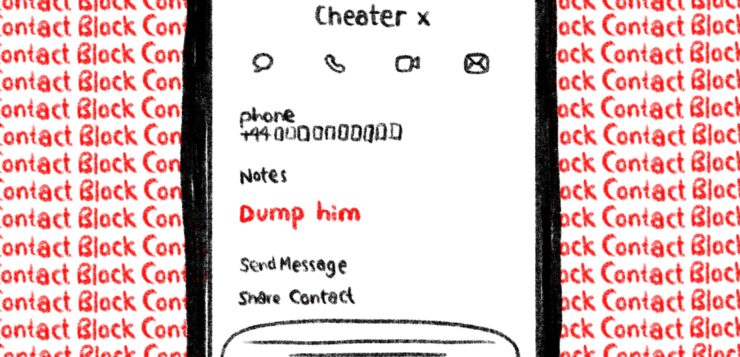Trigger warning: mentions of suicide, mentions of abuse
I always thought one of us would die before I left her. Either she would kill herself (as she consistently threatened), kill me, or— in my worst nightmares— both. Every one of these possibilities struck me as the most realistic outcome— so much so that I never had any concrete plans to leave her.
If you’re like most people, I imagine that reading that opening paragraph has left you with one question on the tip of your tongue. It’s the question everyone has asked me since I opened up about my experience with abuse in July 2020: why did you stay? That’s what everyone wants to know, isn’t it?
I’ve never known how to answer that question and now, after 2 years of no contact with my abuser, I’ve given up trying to formulate an answer that will make people understand. So, instead, I’ll simply ask you to imagine a reality so horrific that it blotted out my concept of a future and robbed me of the ability to protect myself.
You should also know that I didn’t have a script for the final phone call I made to my abuser on that sticky July afternoon. I didn’t even know that would be our last phone call. When I look back on that moment— the phone call that ultimately saved my life— I want to remember it as being cathartic. I want to imagine it like the breakthrough moment in a movie— the scene where hope swells in the heart of the viewer as you realise that, against all odds, the good guy is going to win.
But, in reality, it didn’t happen like that.
There was no argument, no emotional goodbye, no moment where I told her any of the things I would later write.
There was nothing about that phone call that would leave her with the explicit assertion, “What you did to me was abuse.”
In fact, I think the most overt thing I said was, “I feel like… maybe… I have PTSD. And I think maybe it’s because of you. …if that’s okay.”
Ultimately, thanks to that phone call, my relationship with my abuser ended in much the same way as it began: softly, slowly, with no indication of what was yet to come. The moment I left her came about in the middle of an ordinary conversation; one minute, we were talking about what she was currently binging on TV and the next, I realised for the very first time that the sound of her voice made me physically ill. The next realization crashed on top of that one like a wave: I never want to hear her voice ever again. “I think my circumstances have changed.” I can still feel the wobble in my voice when I said it. “I can’t pay your Netflix or your bills anymore. I feel like… maybe… I have PTSD.” And then I said goodbye and asked my mum to delete and block her number from every electronic device I owned.
When I look back on that moment, it’s nothing like I want it to be. And I would love to re-write that memory, to pretend I said something bold and powerful, to imagine I said something that hurt her even a fraction as much as she hurt me. I would love to imagine an alternate ending in which I wring an apology out of her or she begs me to stay. But that isn’t how it happened. And that’s why, when reflecting on the theme of finality, I wanted to write about this experience.
Because the sad reality is that we don’t always get the closure we need or deserve.
Our last moments with people, our climactic experiences don’t always feel the way they should. And, sometimes, we can feel as haunted by that lack of closure as we do by our experiences.
My abuser has never apologised for anything she did to me. I never got to look her in the eye— or even assert myself through the phone— and tell her exactly how I suffered because of what she did. And, later, I was indeed diagnosed with PTSD as a direct result of my relationship with her. But after two years of no contact, I’ve decided that’s okay. Because, as much as I wanted that dramatic final moment, as much as I craved that closure, I’ve decided that last phone call is so insignificant compared to everything that came after.
In the end, that final moment with her was exactly that: an ending. It was turning the last page and closing the book on the most horrific chapter in my life. That ending was necessary not because of the moment itself but because of the future it facilitated. Without that final moment— as imperfect as it was— I would never have turned a new page or started the story of my life without her.
I spent a long time grieving for what should have been, who I wanted her to be, and even what I wanted for that final moment. But, in the end, I’m thankful for that imperfect goodbye and every other unexpected final moment that has opened the door for a new and brighter future.




